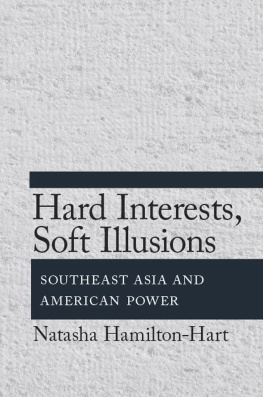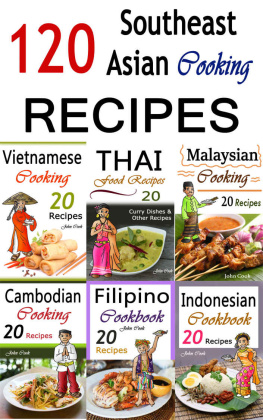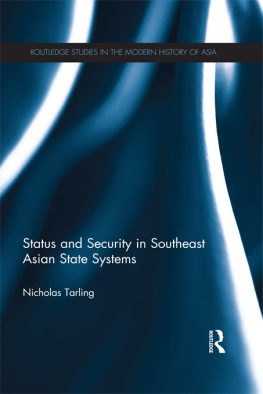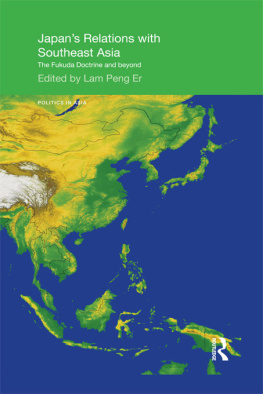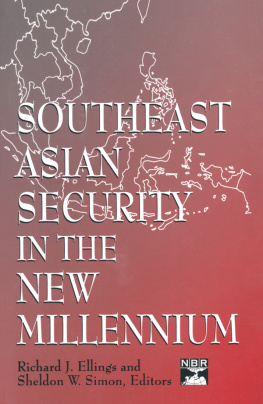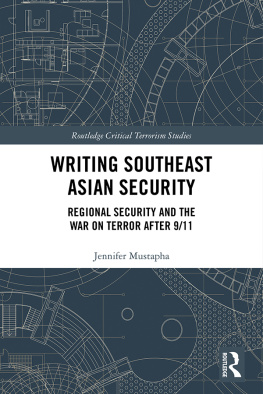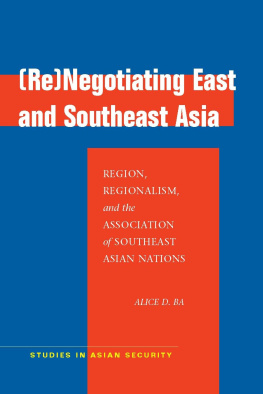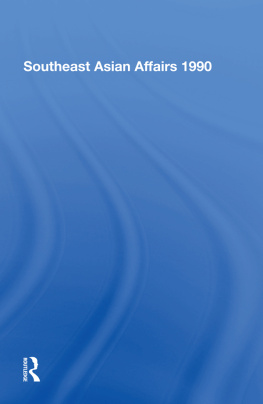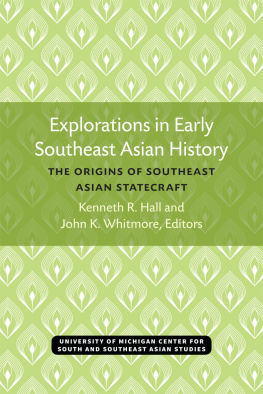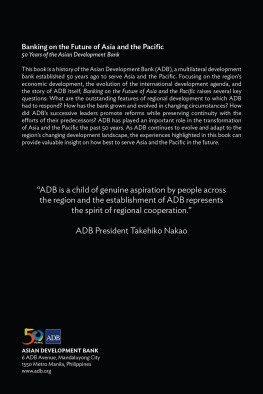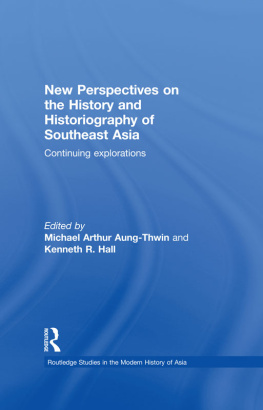HARD
INTERESTS,
SOFT
ILLUSIONS
Southeast Asia and American Power
Natasha Hamilton-Hart
CORNELL UNIVERSITY PRESS ITHACA AND LONDON
For Andika, who need take only the best from history.
Contents
Acknowledgments
Beliefs about American Hegemony in Southeast Asia
Behind Beliefs: Hard Interests, Soft Illusions
The Politics and Economics of Interests
History Lessons
Professional Expertise
Regime Interests, Beliefs, and Knowledge
Appendix: Interviews
References
Acknowledgments
Writing this book has often felt like an exercise in trespassing: straying over the territory of others and infringing on their kindness. I have tried not to be the sort of trespasser who leaves gates open and damages the crops. But I have been uncomfortably aware that the nature of this project suggests an unwarranted conceit on my part. Setting out to explain someone elses beliefs is a presumptuous and rather impolite undertaking. Although I have relied greatly on the willingness of many individuals to share their beliefs and insights, the intellectual task undertaken in this book is not to explain individual beliefs but prevailing patterns of belief. The respondents who so very kindly gave their time to be interviewed were more sophisticated and nuanced in their answers to my questions than the fragments reproduced here can convey. Where I have sometimes noted that a respondent did not mention something during the interview, this should carry no implication that he or she was unaware or uncaring of it. I must also make it clear that those who consented to be interviewed do not necessarily agree with my argument or my interpretation of their interview responses. I have tried to ensure that I captured the meaning of interview responses accurately, but ultimately there is an unavoidable layer of interpretation for which I must take responsibility. Since many of those interviewed wished to remain anonymous, I thank them collectively here and ask for their forgiveness if I have made errors in interpreting their responses.
For very helpful advice and other types of assistance, I thank (in Southeast Asianstyle name order) Bruce Lockhart, Chie Ikeya, Chong Ja Ian, Don Pathan, Douglas Kammen, Evelyn Goh, Goh Benglan, Jaime Naval, Jamie Davidson, Janice Bially Mattern, Lina Alexandra, Mafie Tanyag, Michelle Tan, Mohamed Jawhar Hassan, Nguyen Do Thuy Anh, Pham Quang Minh, Puangthong Rungswadisab, Richard Stubbs, Richard Robison, Rizal Sukma, Simon Tay, Soravis Jayanama, Tanya Laohathai, Thitinan Pongsudhirak, and Zakaria Haji Ahmad. I am also grateful to Roger Haydon at Cornell University Press for his enthusiasm for the project and his sharp suggestions for making it better. Tran Anh Dao cheerfully translated Vietnamese history textbook material. As in the case of those interviewed for this book, those who helped in numerous other ways did so without necessarily agreeing with my analysisor, in the case of those who facilitated my visits to Jakarta, Kuala Lumpur, Hanoi, Bangkok, and Manilabeing aware of the books argument, which was then still under development.
The research for this book was completed when I held a position in the Southeast Asian Studies department at the National University of Singapore, where I spent ten years immersed in an area studies milieu and, for most of this time, happily distant from my disciplinary home in political science. As I worked on this project, I became more appreciative of the strengths of both approaches to scholarship and, at least at times, hopeful that they could be happily married. Grants from the Academic Research Fund and the Faculty of Arts and Social Sciences of the National University of Singapore supported parts of the fieldwork on which this book draws.
The events that hit the world news headlines in the years from 2002 onward form part of the backdrop of this book. I would probably not have written it, however, if it had not been for a number of outstanding historians and journalists whom I have never met in person but whose work opened my eyes.
BELIEFS ABOUT AMERICAN HEGEMONY IN SOUTHEAST ASIA
There is little effusive sentimentality about the United States among foreign policy elites in Southeast Asia today. More than sixty years have passed since President Manuel Roxas of the Philippines declared that the safest course for his newly-independent country was to follow in the glistening wake of America. His view was emphatically rejected by many Southeast Asians at the time and does not resonate in a region formally committed to independence and norms of noninterference. Extravagant statements professing a kindred spirit and shared vision sometimes still adorn official speeches and communiqus, but these appear intended for diplomatic consumption only. Leaders and foreign policy thinkers in Southeast Asia more often seem to identify with Lord Palmerstons dictum: Nations have no permanent friends or allies, they only have permanent interests. They generally paint themselves as rational and pragmatic, dealing with external powers according to the dictates of national interest rather than sentiment. Yet behind the apparently hard-headed calculations of interest lie beliefs that cannot be explained as straightforward responses to a set of external conditions. Rather than being the product of formal reasoning, assessments of probability, or self-aware attempts to navigate tradeoffs and uncertainties, many core beliefs informing foreign policy orientations reflect commitments and biases that are political, cognitive, and affective. Beliefs in this sense are both powerful and independent.
This book investigates one such set of beliefs: beliefs about the international role and power of the United States held by foreign policymakers and practitioners in six Southeast Asian countries. Their beliefs are the basis on which they define some countries as potentially threatening and others as relatively benign. Such beliefs are foundational in the sense of making possible specific foreign policy decisions as well as underlying broad foreign policy orientations of alignment, opposition, or nonalignment. With some qualifications and exceptions, majorities in the foreign policy communities of Indonesia, Malaysia, the Philippines, Thailand, Singapore, and Vietnam see the United States as a relatively benign international power. Although they may dislike many aspects of U.S. foreign policy, it is close to axiomatic in foreign policy circles that the United States is, overall, a benign and stabilizing power. This belief underlies Southeast Asian support for a regional order in which the United States has exercised predominant power and is thus instrumental in sustaining American power in the region. Beliefs therefore matter. But what drives the beliefs themselves?
For those who share a belief in the benign nature of American global predominance, it may seem unnecessary to explain why some people believe the United States to be benign. If people manage to see an external reality more or less as it is, why bother to explain this? This book argues that foundational foreign policy beliefs are not straightforward reflections of an external reality and in many cases cannot be tested against an external reality. They inevitably reflect the interests and position of the believer. They depend on implicit tradeoffs that are not only incommensurable but also affectively disturbing. They frequently rest on attitudinal positions of liking or disliking and affective (feeling) dispositions, neither of which can be considered accurate or inaccurate. This does not mean that beliefs are insincere or merely instrumental rationalizations. Interests influence beliefs, but how they do so depends on available information, the social organization and practices of a professional sphere, and the prevailing standards for generating knowledge.

